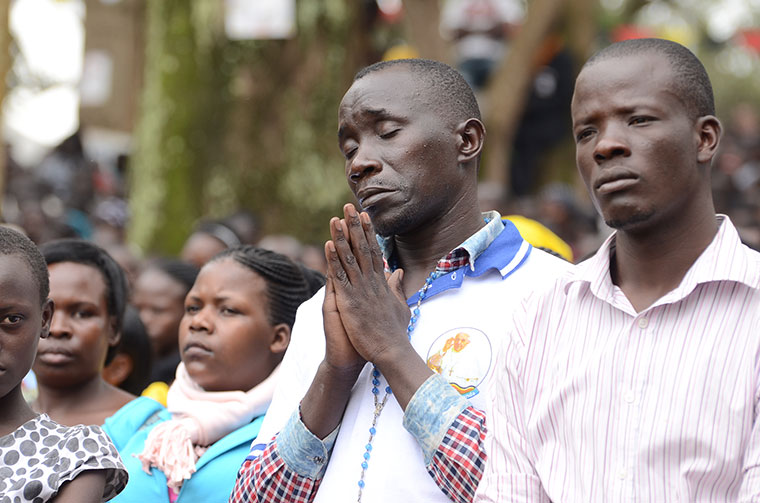
Author : Yahya Sseremba
Source: The Observer
The modern state is largely—if not entirely—a legal phenomenon. The law, at least in theory, governs everything and everyone within the jurisdiction of the liberal state.
Ironically, whereas humans are driven by reason to constitute society, the law uses force or the threat of force to govern society. Although the law invokes reason as the yardstick of its purported justness, it cannot stand without leaning on the tools of violence.
Interestingly, the violence of the law is presented as if it was natural and indispensable for social order. It is alleged that without the violence of state law, society would revert to the proverbial state of lawlessness.
This claim has no historical basis. Until the late fifteenth century in Europe and much later elsewhere, humanity existed in organized societies without the state.
Only simple governments or simply rulers existed. There was no state structure that consolidates, centralizes, and monopolizes power in order to dominate society completely. Instead, different powers co-existed in the same political community in a diffused manner.
In African kingdoms, the king was only one among many other power holders, including clan heads, spirit mediums, royal women, and others, even as late as the nineteenth century.
Some “dictators” tried to seize greater power for themselves, but they barely succeeded. Buganda’s Muteesa I, like some of his predecessors, raided the shrines possibly to bring spiritual political authority under his royal political authority.
But his efforts achieved little as the shrine continued to be an important political influence until the colonial state reconstituted traditional authority by creating despotic “native” authorities.
Much of pre-modern power was embodied in what modern language misleadingly calls religion. The kusamira in Buganda and kubandwa in neighboring areas constituted forms of political leadership as they addressed practical issues of famine, epidemics, productive living, etc.
In Muslim societies, the ruler exercised limited power. Society largely managed its affairs through self-rule enabled by mechanisms like the shari’ah and custom.
The shari’ah was society-based law, not state law, in the sense that it was produced (i.e. derived from the Qur’an, Sunnah, etc.) by private legal experts known as muftis.
Unlike the modern mufti who is an extension of the state, the pre-modern muftis emerged ‘organically’ on account of their outstanding knowledge. Wael Hallaq gets it right when he says that legal authority in Islam was epistemic, that is, knowledge-based, not social or political, or even religious.
Whereas the opinion of the mufti was not binding, it informed many court rulings. By producing the law that governed society, the mufti exercised political leadership even if he held no government office.
Only medieval Europe attempted to forge a consolidated structure of power around the notion and person of God’s representative on earth, namely, the pope. I will discuss the significance of this case next week. For now, suffice to note that even the authority of the pope was contested and limited.
Does the pre-modern diffusion of power mean that political authority was less violent? Yes. The kings, chiefs and other actors who could unleash lethal force held only a fraction of political authority. This fraction of authority was violent.
But the rest of the authority, which was based in society, did not need much violence because its diffused character allowed multiple authorities to coexist and counterbalance each other. Violence tends to define authority when a single authority emerges and insists that it must be the only authority. This is the problem of the modern state.
Even society-based multiple authorities could sometimes converge and collectively unleash repression against a particular group. This, however, was not always the case compared to the modern state whose power is inherently repressive regardless of its democratic credentials.
I said that the phenomenon nowadays called religion provided political leadership in the context of the pre-modern diffusion of power. This is not the same as saying that religion was mixed with politics, for to mix two things presupposes that each was self-evidently distinct in the first place.
In fact, there is no word for religion in non-European languages before European colonialism. Due to European epistemic colonization, these languages eventually ‘discovered’ words to mean religion.
In pre-modern Europe, the closest word to the modern term religion was religion, which, according to political theologian William Cavanaugh, meant strong obligation to anything, including family, occupation, king, God, etc.
Religio was not restricted to what present-day people call religion. Religion as an entity on its own is a modern Western invention.
Pre-modern societies surely differentiated between revelation and reason, traditional sciences and rational sciences, God’s things and Caesar’s things, etcetera. Yet, such descriptive distinctions did not mean that life was thus rigidly compartmentalized.
The author is a researcher at Makerere Institute of Social Research

